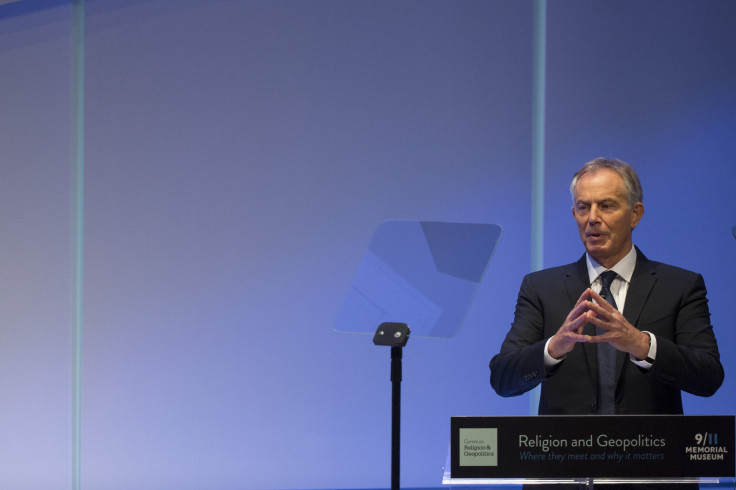Tony Blair Claims Many Muslims ‘Incompatible With The Modern World’

Former British Prime Minister Tony Blair said “many millions” of Muslims hold a viewpoint that is “fundamentally incompatible with the modern world.” Blair, who supported the U.S. invasion of Iraq more than a decade ago, said the West would face “increasingly frequent acts of terrorism” unless there was concerted action to “defeat” an ideology of extremism.
Blair explained his national security objectives in an op-ed published in the Sunday Times. He urged “active on-the-ground military support” from Arab nations to fight the Islamic State group in Iraq and Syria.
He said members of the militant group also known as ISIS are not simply “tens of thousands of brainwashed crazies.” He said Islam is largely “an honorable and peaceful faith,” but too many Muslims have views that are outdated.
“Over the past half-century or more there has developed a narrative within Islam about the religion, its place in the world, its purposes and its proper relationship to politics and society, which has intensified its religiosity, changed the character of its interaction with those of different faiths, and is fundamentally incompatible with the modern world,” he said. “It is this ‘Islamism’ which begets Islamist extremism which begets the acts of violence. The reality is that the adherents of this view of Islam are numbered in many millions, have, in some countries, elements of official support, and are systematically teaching it to millions of young people across the world.”
After attacks carried out by ISIS supporters in Brussels and Paris in recent months, Blair warned this week that there could be “many more victims” if the Islamic State group is not stopped.
“ISIS has to be eliminated with greater speed and vigor,” he said.
Blair recently linked ISIS to the invasion of Iraq in 2003 led by former U.S. President George W. Bush. “I think there are elements of truth in that ... Of course you can’t say that those of us who removed Saddam in 2003 bear no responsibility for the situation in 2015,” he told a CNN interviewer in October when asked whether he thought the invasion of Iraq was a “principle cause” of the rise of ISIS. “But ... it’s not clear to me that even if our policy did not work, subsequent policies have worked better.”
© Copyright IBTimes 2025. All rights reserved.






















